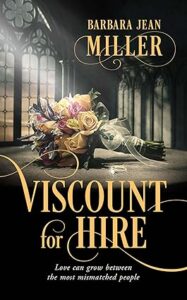Thanks for the question, M.L., and for being a Regency Reader!
This is one of those questions where the answer is an “it depends.” Really, it would depend on the individual male’s preference.
But I figured it might help to put some colour around the concept to give you an idea of where to go with storytelling, and how to figure out whether the man might stay behind.
Dunbar, M. C. (1834). Dunbar’s Complete Handbook of Etiquette: Clear and Concise Directions for Correct Manners. United States: Excelsior publishing house.
This example formulates the historical romance community’s idea: gentlemen stay behind to talk of politics and other manly pursuits, while the ladies retire to the parlor to sip tea and make small talk while they await the gentlemen. Yet the record reflects some diversity with this tradition.
The Literary Panorama. (1806). United Kingdom: (n.p.).
In this instance, its obvious the husband is not being considerate of his wife and trying the patience of all the women.
Some women deplored this tradition and there was a backlash against it in some circles:
PARKES, F. (1825). Domestic Duties … Second edition. United Kingdom: Longman & Company.
There are some texts that suggest it was not uncommon, particularly in the latter half of the long Regency, for women to have a drink before retiring:
and that often it was smoking a cigar that made the ladies leave for the parlor:
Littell’s Spirit of the Magazines and Annuals. (1838). United States: E. Littell and Company.
Here is another example in the late Regency:
Etiquette for the Ladies. Eighty maxims on dress, manners, and accomplishments. Fourth edition. (1837). United Kingdom: Charles Tilt.
I submit to you, Regency Readers, that this custom was not obligatory, and depended on the gentlemen present and also whether or not they wanted to blow a cloud.
In the hypothetical instance, my bet would be on the sole male offering up a Port, Madeira, or Claret to his party before ushering them into the parlor (unless he stepped outside to smoke) to enjoy tea, games, music, and conversation.
Here are some articles about the etiquette and traditions of after dinner port:
Etiquette of drinking Port: Pass the Port | The Gentleman’s Journal
Quaint British Customs When Serving Port Wine
As with all my answers, they are opinions based on a modern reading of historic text.
Ask us more questions about the Regency in our Regency ? page. We are also trialing a new service, Research Requests, for writers or others wanting a more in-depth answer with sources, or looking for a Beta read with an eye to historical details.
Appreciate our research? Please share with other readers, leave your comments, buy a book through one of our links on reviews, or buy us a cup of tea!











